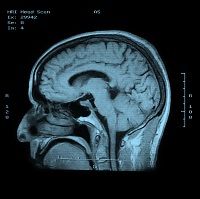Article
Boosting Confidence and Independence in Patients with Multiple Sclerosis
Author(s):
Building multiple sclerosis (MS) patients' confidence can improve their quality of life, according to a study published in the Journal of Rehabilitation Medicine.

Building multiple sclerosis (MS) patients’ confidence can improve their quality of life, according to a study published in the Journal of Rehabilitation Medicine.
Researchers from Case Western Reserve University aimed to determine what factors prevent individuals with MS from completing the activities they enjoy and perceive as important in order to help the population maintain autonomy and independence. The 335 participants — mean age of 53 and had lived with MS for an average of 15 years – ranked 20 predetermined meaningful activities and they were assessed using the Community Participation Indicators (CPI).
Some of the activities included in the rankings were “getting out and about,” “spending time with family and friends,” “managing bills and expenses,” and “participating in clubs and civic and political events.”
Other variables the researchers noted were symptom severity, activities of daily living limitations, cognitive problems, stages of change for physical activity, nutritional behaviors, self-efficacy, and environmental barriers. The study authors wanted to identify factors that rehabilitation professionals might target to increase overall engagement in community activities and promote other healthy behaviors, like exercise and eating right, a press release from the organization outlined.
The researchers found that lack of confidence, physical and mental impairments, and environmental factors preventing the MS patients from being engaged in social and community activities. Physical impairments included MS fatigue, cognitive problems, mobility issues, while environmental factors included inadequate social support and transportation issues. In order for MS patients to engage in healthy behaviors and meaningful activities, the researchers believe spending time with family and friends is key.
The next step for the researchers is to design and test an intervention that builds confidence in MS patients. The intervention is laid out as individual steps to take to make adjustments and learn new skills to engage in activities the patient has indicated they would enjoy and find meaningful.
The authors wrote that upcoming research “should explore whether interventions that promote self-management self-efficacy can facilitate participation in meaningful activities.”



